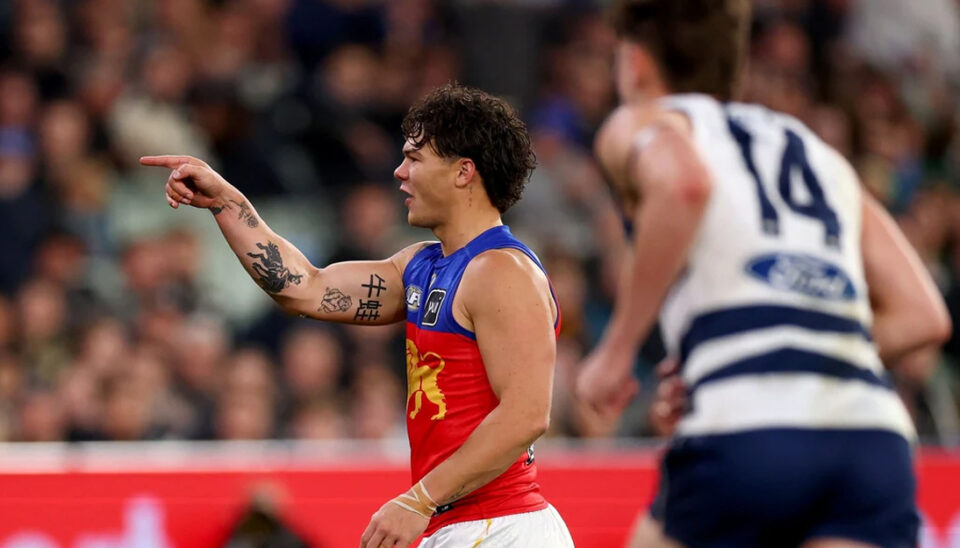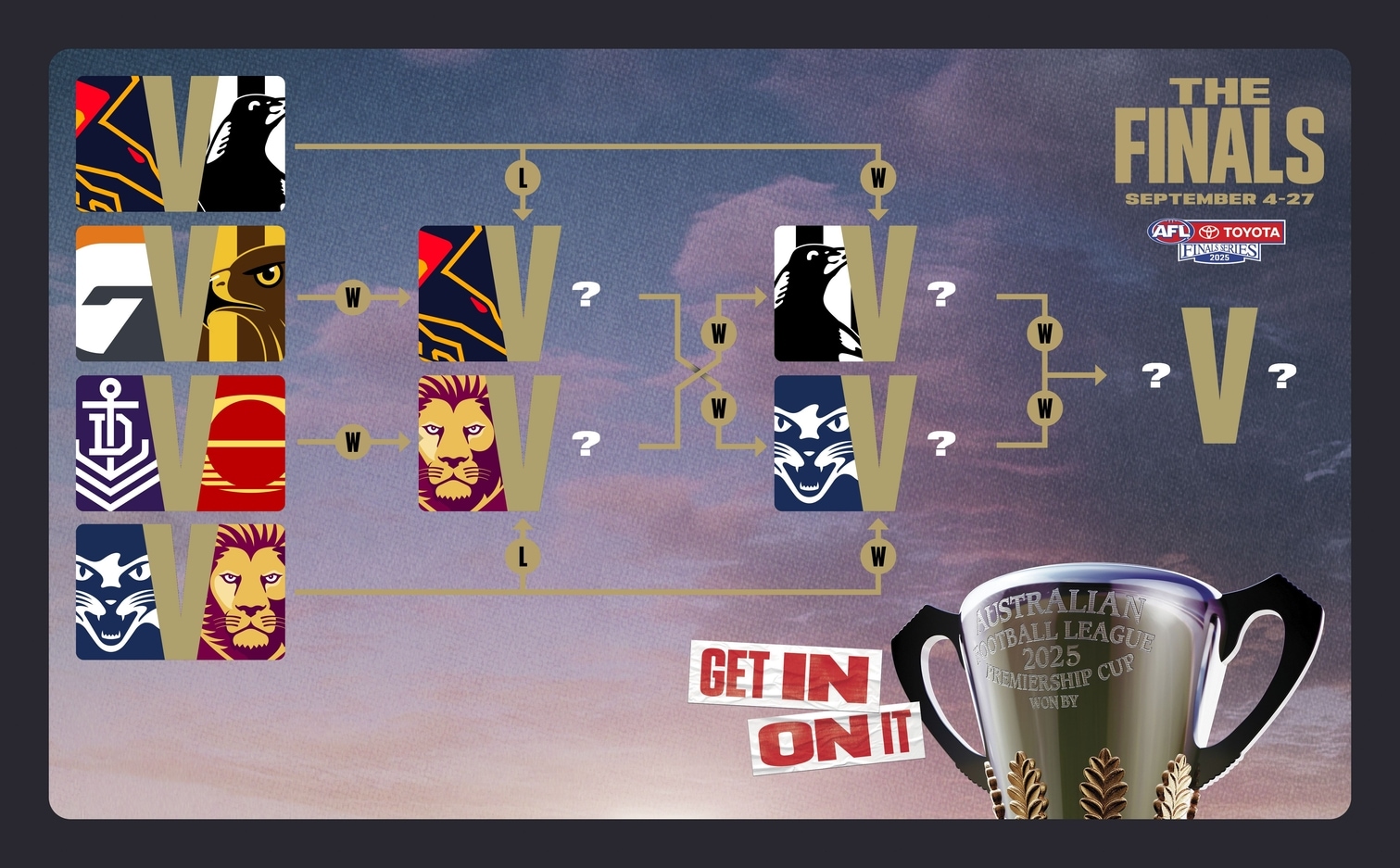CAM RAYNER had done it to Geelong before. The hero of last year’s preliminary final comeback, Rayner enjoyed key moments in Brisbane’s magic flag run last September but none better than his long bomb goal to seal the Lions’ passage to the Grand Final.
This time, as the Lions returned to the MCG for another huge finals bout with the Cats, Rayner quickly became Geelong’s public enemy No.1 courtesy of a generous free kick that threatened to turn the qualifying final.
After a slow start and only one disposal in the first term, Rayner continued to struggle to break the clampdown job of Cats stopper Mark O’Connor. A solution was to isolate inside-50, find some contests one-on-one and see if it was a way to break free of O’Connor’s niggles and nags.
As Geelong went on a four-goal-in-a-row run at the end of the second term and Tyson Stengle had the ball at half-forward poised for another shot, Rayner and O’Connor were in the Lions’ goalsquare at the Ponsford Stand end. Under the close-checking eye of umpire Brent Wallace, O’Connor gave Rayner a push in the back, to which Rayner sensed the moment and went to ground and was paid a free.
It will doubtless be a decision replayed a hundred more times over the weekend.
The ball was taken out of Stengle’s hands and sent back to Rayner, who broke the Cats’ momentum and quickly pointed at O’Connor after slotting the shot, which was only his second kick of the night. That saw Cats teammate Zach Guthrie rush in to remonstrate with too much force, bundle Rayner over and give away another free kick, leading to a double goal on the stroke of half-time. A 27-point lead had been cut to 15 and you wondered whether Brisbane had somehow manufactured a way to find its mojo.
Another Rayner goal came after half-time at Geelong’s cheer squad end early in the third quarter, after which the former No.1 pick ran to the Cats’ fans with repeated ‘shushes’. As O’Connor stuck to his task at Rayner’s side, the one-on-one battle became more engrossing, with each disposal won, tackle laid, mark taken and spoil landed leading to a chorus of cheers or boos depending on the bay at the MCG.
The double-goal could have been a turning point for a team less experienced, less mature and less on-song than the Cats, who had taken the advantage through a midfield dominance, an overall discipline and reliable variety in their side.
But this is Geelong.
In a game the Cats had controlled, it ended up mattering not, with Chris Scott’s team maintaining control and kicking eight goals to four after half-time to move one win away from a Grand Final.
As they set up the game in the second quarter, the coach pulled out his ‘Chris Army Knife’ as the most versatile side in the competition flipped the magnets.
Jeremy Cameron, who had six shots on goal in the first quarter, moved to the wing and Ollie Dempsey went deep forward to kick a goal, one of three for the night. Backline stars Tom Stewart and Sam De Koning drifted forward to boot goals, while Lawson Humphries shifted onto the wing from half-back. Even All-Australian midfielder Bailey Smith found himself at half-back at one stage. Oisin Mullin was so versatile he managed to go wherever Hugh McCluggage went.
It was an assault that picked apart the Lions’ plans and locked Geelong into another preliminary final, the Cats’ 14th top-four finish in the past 19 seasons.
Pre-game, at the AFL’s official function, chief executive Andrew Dillon praised the Cats’ staying power of contending in his welcome speech, remarking that their continued excellence was an outlier to the competitive balance measures in place for the competition.
He’s not wrong. And with a group of players striving for their first flag – Bailey Smith, Max Holmes, Shannon Neale, Dempsey, Connor O’Sullivan and more – and a pack of medal winners wanting more, Geelong took a massive step towards its second premiership in four years. It is hard to not see them featuring on the last Saturday of September, yet again.





